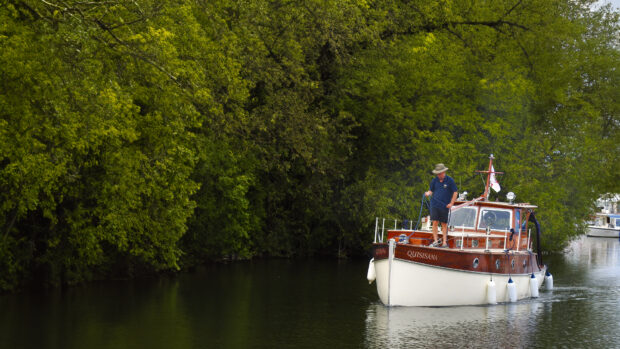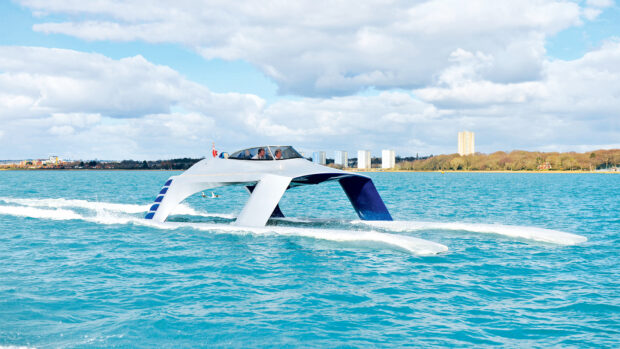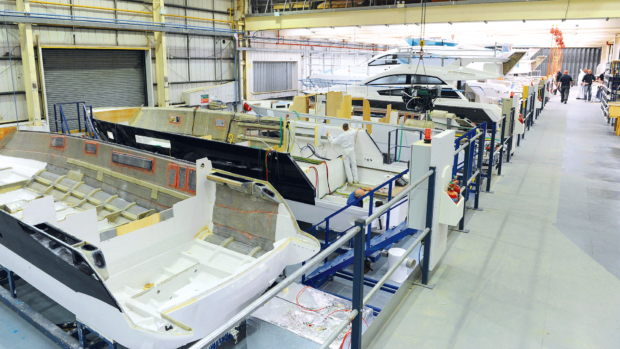Our resident boating instructor Jon Mendez explains how to recover a boat on a trailer and shares the potential pitfalls to avoid...
We’ve previously explained how to launch a boat from a road trailer, but in this video we are looking at how to recover it back onto the trailer.
If you are recovering it at the same site that you launched from, then you will know the slipway’s key characteristics; how steep it is, how slippery it is, whether there is a drop off at the end and whether there are any tidal constraints. The slipway in these photos is only usable about 2.5 hours either side of high water.
The last thing you want to do is rush the recovery process so arrive early and take time to get everything ready. Your first task is to drop one of your crew ashore to retrieve the car and trailer and position it ready for recovery.
The trailer needs to be on the slipway with the wheels of the tow car just above the water’s edge and the trailer deep enough for you to drive the boat onto it, preferably all the way to the winch post. This may not be possible if the slipway has a gentle slope – generally speaking the steeper the slipway, the easier the recovery.
There are two main styles of trailer; those with carpeted bunks and those with rubber rollers. Rollers have less friction and tend to allow a shallower recovery, while those with bunks usually need the trailer to be deeper in the water.
Article continues below…

How to launch a boat from a trailer

How to dock a boat: Three simple methods for single shaftdrive boats explained
In both cases you will need to pull out the winch strap far enough for it to be attached to the bow eye on the boat once it’s at least half the way onto the trailer. This can be clipped on either by the person ashore or by the person in the boat. If it’s the latter, your shore crew will need to lay the strap on the trailer so the helm can lean over the bow to collect it.
For trailers with rollers on pivoting sections, ensure the pivots are tilting the right way to meet the shape of the hull. You could use bungee cords to restrict their movement. With a steep enough slipway it’s possible to drive the boat straight up the trailer all the way to the winch post. Failing that you will need to winch the boat the last few feet to the rubber stop.
How to recover a boat: Approaching the slipway
The steps leading up to this point are simple. Firstly, get your boat organised with a bow line ready to tie around the winch post – don’t rely on the winch hook alone to hold it, especially on a steep slipway.
Trim the engine up a bit to help lift the bow as you mount the trailer, and be prepared to lift it further to avoid grounding the propeller as you drive further up the trailer.
From a distance of a couple of boat lengths, line the boat up on a transit of the first central roller and the winch post at the far end of the trailer, making sure you allow for any offset of your boat’s helm position.
Your angle of approach will also depend on how much wind and tide there is, so hold station for a few seconds to see if you are being blown or swept around before committing. The key is to make sure the bow is centred on the trailer, so if in doubt, back off and try again. Approach the trailer as slowly as you can whilst still maintaining steerage.
Once you are certain the bow is located centrally between the bunks or on the first keel roller, you can start to apply more power while steering towards the far end of the trailer.
How much power will depend on the trailer and steepness of the slipway. This one needed a two-second burst to get the rollers moving. Once you are certain you are far enough onto the trailer not to risk slipping back, leave the helm and go forward to attach the winch strap.
Get your shore crew to winch it on as close to the post as possible then pass your bow line around the winch post and secure it back onto the bow cleat. Next, turn the engine off and raise it fully before the car starts to pull up the trailer.
Finally, give it all a good wash down, especially the trailer wheels and bearings, attach the straps and lights, drive forward a little way and check the brakes are working. After a couple of miles, find somewhere safe to pull over and do the same all over again to check it’s all still secure.
First published in the July 2023 issue of MBY.










